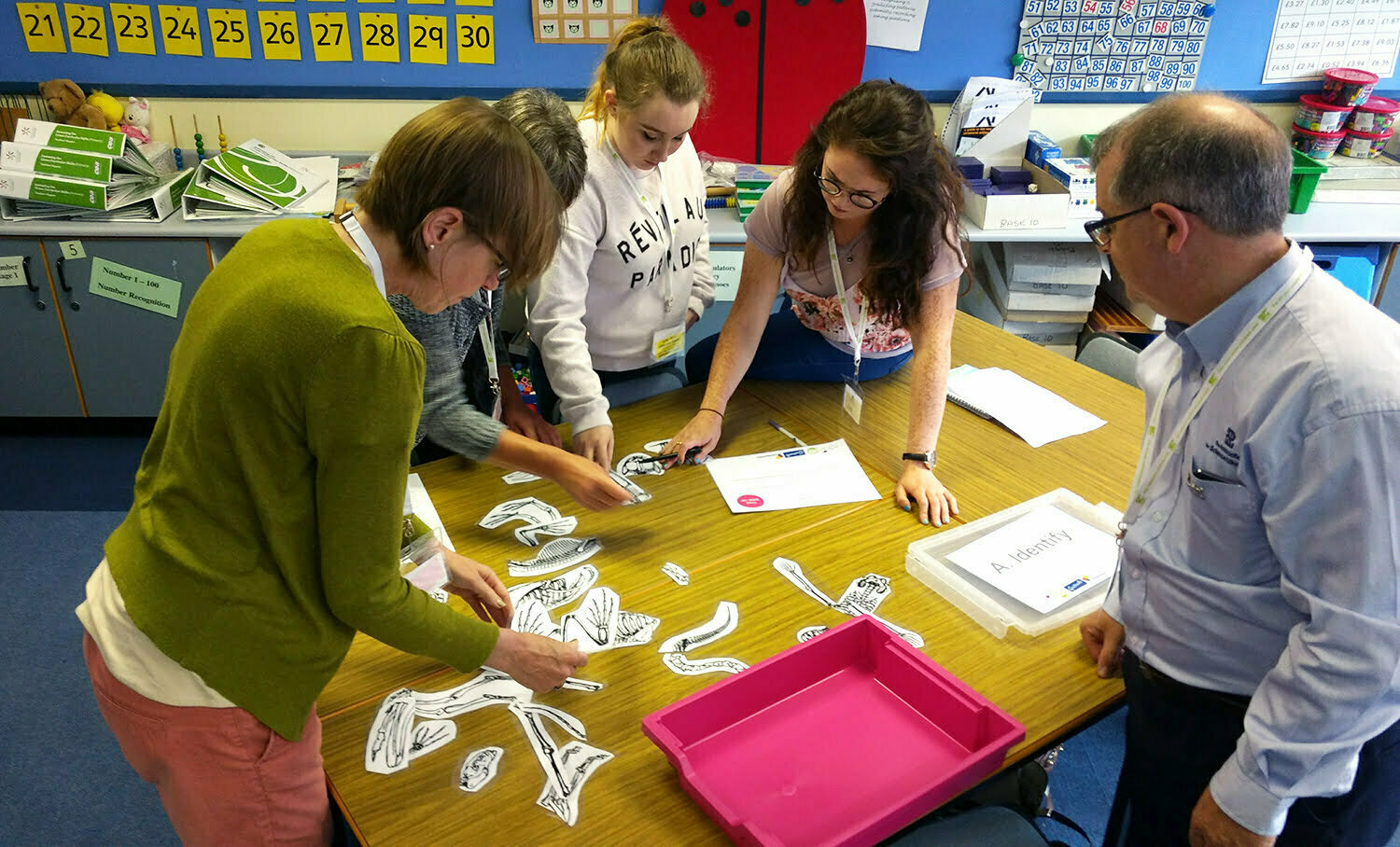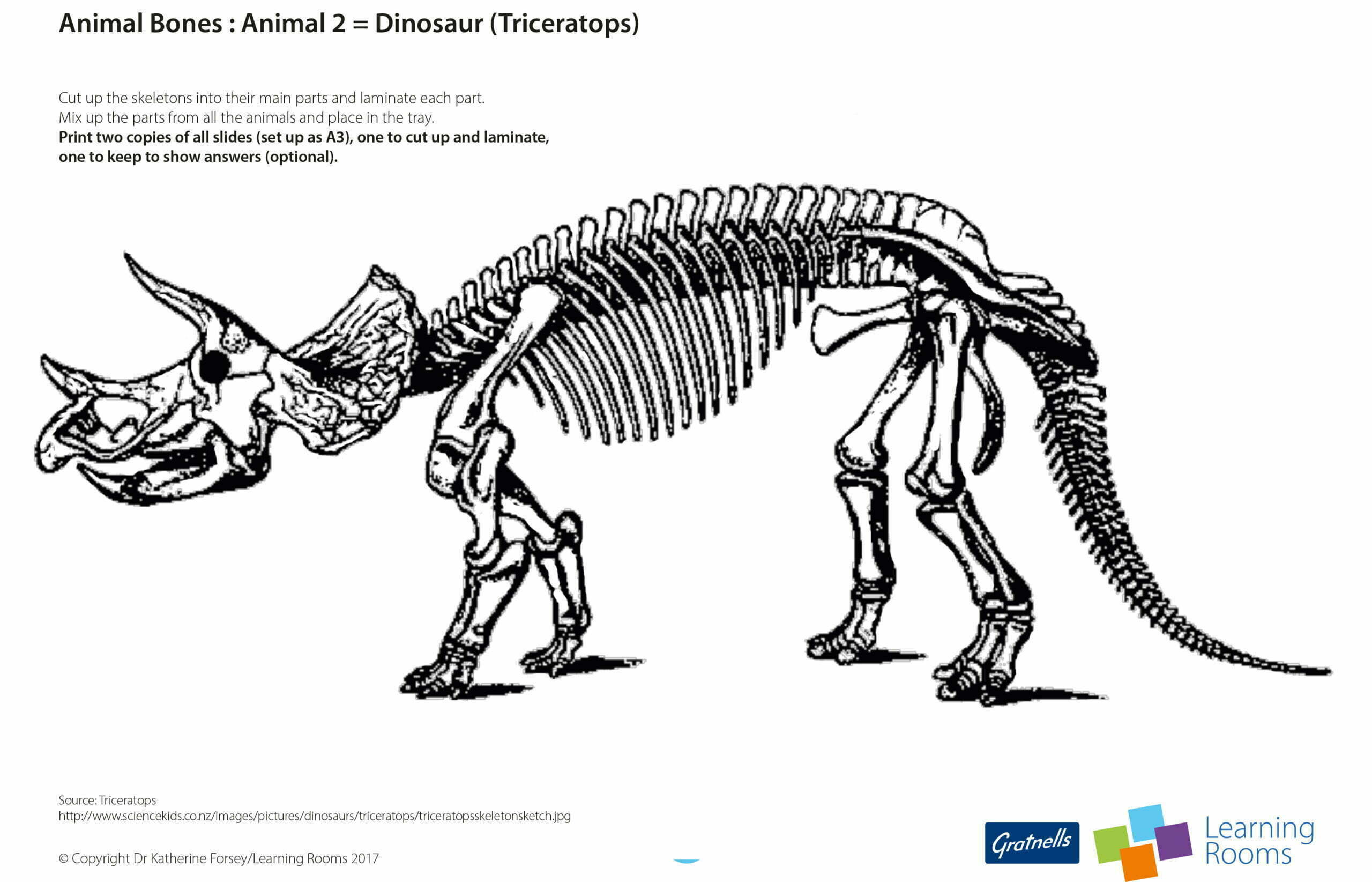Animal bones – primary
This activity was created as part of a Gratnells What’s In My Tray CPD workshop for primary science teachers to support practical work and delivery of the curriculum. It can be carried out as a stand-alone activity for students or combined with other activities from the session to form a STEM carousel.

Animal Bones – identify
You will need (per team of 4):
- 1 x Shallow Gratnells (F1) tray with lid
- Black and white pictures of five different animal skeletons
- 1 x Scissors
- 1 x Laminator (optional)
- 5 x A3 laminating pouches (optional)
This activity also works for individuals or smaller teams, just increase the amount of time allocated to complete it.
Preparation:
- Print the black and white pictures of five different animal skeletons on to A3 paper.
- Cut around the edge of each picture and then cut up each skeleton into its main parts (around five parts per animal works well). Laminate each part separately (optional). Trim around the laminated sections to give a neat finish.
- Mix up the parts of all five animals, place them face down into the shallow Gratnells (F1) tray and put the lid on.
What to do:
- Approach the tray and lift the lid.
- The tray contains a mixture of animal bones. Working as a team, sort them out and identify the animals they belong to.
- Write down the common names of the animals in alphabetical order.
- 1 point per correctly identified animal.
- When you have finished put everything back into the tray.
Answers:
Animal 1 = Bird (Pelican)
Animal 2 = Dinosaur (Triceratops)
Animal 3 = Dog
Animal 4 = Frog
Animal 5 = Human
One point per correct answer. Bonus point for each if you said pelican or triceratops.
Answers do not have to be in alphabetical order to be awarded points, it just makes it easier to mark.
Other things to try……
- For higher age and ability students, during the preparation stage, add further animal skeletons to the tray or cut the existing skeletons up into smaller parts i.e. making the jigsaws more difficult to put together. You could also swap in different, more irregular or less familiar, animals.
- For lower age and ability students, place a different coloured small spot sticker on the back of each animal part before placing it into the tray i.e. all the bird parts have a yellow spot on the back, the human parts have a red spot on the back and so on. The students only need to work out how to piece the parts together and identify the animal rather than having to work out which animal they belong to.
Health & Safety
As with all Gratnells Learning Rooms What’s In My Tray activities, you should carry out your own risk assessment prior to undertaking any of the activities or demonstrations.


